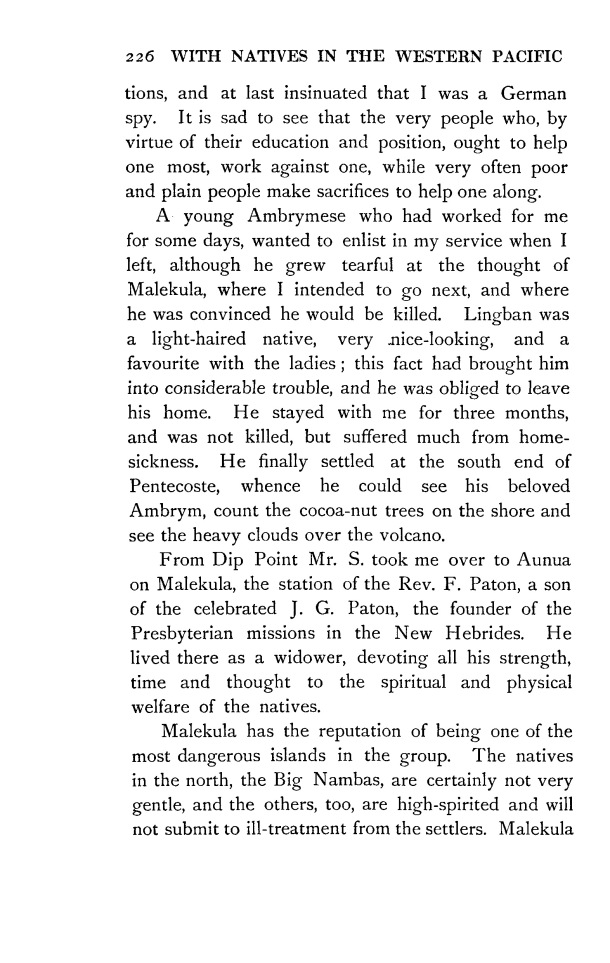|
|  [Note: this transcription was produced by an automatic OCR engine]
226 WITH NATIVES IN THE WESTERN PACIFIC
tions, and at last insinuated that I was a German
spy. It is sad to see that the very people who, by
virtue of their education and position, ought to help
one most, work against one, while very often poor
and plain people make sacrifices to help one along.
A. young Ambrymese who had worked for me
for some days, wanted to enlist in my service when I
left, although he grew tearful at the thought of
Malekula, where I intended to go next, and where
he was convinced he would be killed. Lingban was
a light-haired native, very nice—looking, and a
favourite with the ladies; this fact had brought him
into considerable trouble, and he was obliged to leave
his home. He stayed with me for three months,
and was not killed, but suffered much from home-
sickness. He finally settled at the south end of
Pentecoste, whence he could see his beloved
Ambrym, count the cocoa-nut trees on the shore and
see the heavy clouds over the volcano.
From Dip Point Mr. S. took me over to Aunua
on Malekula, the station of the Rev. F. Paton, a son
of the celebrated G. Paton, the founder of the
Presbyterian missions in the New Hebrides. He
lived there as a widower, devoting all his strength,
time and thought to the spiritual and physical
welfare of the natives.
Malekula has the reputation of being one of the
most dangerous islands in the group. The natives
in the north, the Big Nambas, are certainly not very
gentle, and the others, too, are high-spirited and will
not submit to ill—treatment from the settlers. Malekula
|